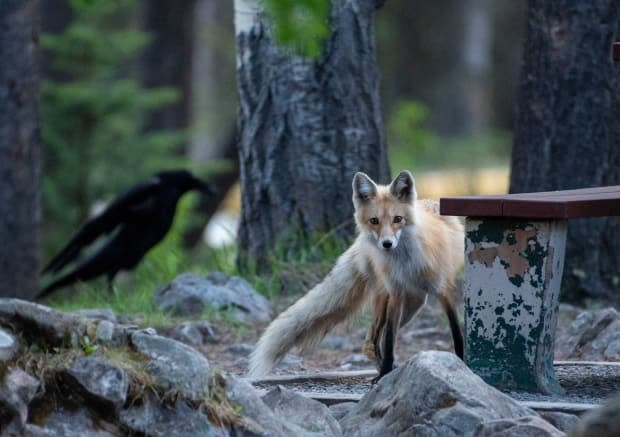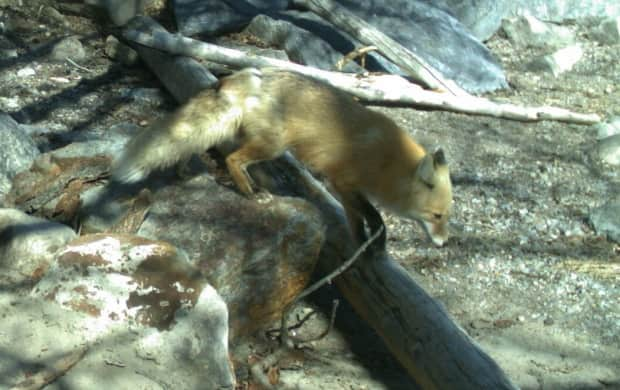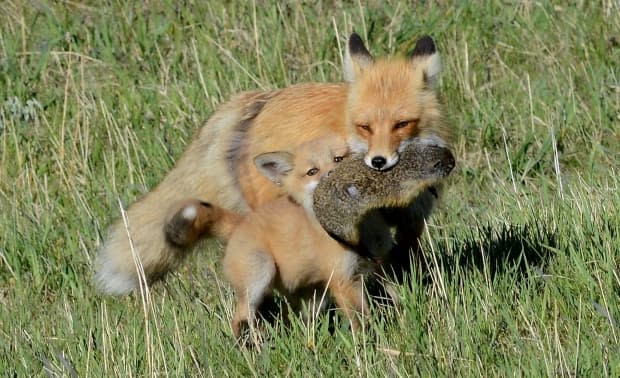These foxes have shut down an area of Lake Minnewanka to have pups

A pair of red foxes who have caused tourist shutdowns in an area of Lake Minnewanka this spring are enjoying the space, reports naturalist Brian Keating.
This is the second year the foxes have denned in the same spot, which is north of the second boat launch in the Lake Minnewanka day-use area.
Keating spoke with Blair Fenton, who works for Banff National Park, to get an update on the foxes to share with The Homestretch listeners.
"[Fenton] said they're doing fine," Keating told The Homestretch this week.
"The closure was necessary because it's so close to a really busy tourist area where hundreds of people a day wander by just metres from the den."

Parks keeps track of the animals through the use of several cameras in the area. Those cameras, triggered by movement, showed the same pair had four or five pups last year.
Keating asked Fenton why the number wasn't exact.
"Blair said to me … 'Well, the kids all look the same, Brian, and it's just the luck of the draw to get them all to pose as a family in front of the camera.'"

'Naturally shy'
Besides protecting the animals from curious eyes, the benefit of making the area off limits to visitors to the lake is that they are less likely to be fed by people.
"Foxes are naturally shy … over time, they'll habituate to people, especially in a heavily used area like Lake Minnewanka," said Keating.
The naturalist says he's actually never seen a fox in Banff National Park. This may be because they most often are active at night and dusk, according to the the province's information.
People shouldn't feed wildlife, says Keating — no matter how tempting — and should be careful when they are eating to dispose of the food properly.
He says feeding foxes would hinder their natural foraging and hunting habits.
Feeding wildlife can also land you a hefty fine — up to $25,000.
"Last year, park staff witnessed fox adults running back and forth from the den, sometimes with dead ground squirrels in their mouths," said Keating.

Foxes are omnivores and will naturally eat a variety of foods like birds, small mammals and even fruit, according to Alberta.ca.
According to Fenton, the area will open to the public again when the foxes vacate the den, which last year was in mid-July.
For more fascinating stories about Alberta's wildlife from naturalist Brian Keating, visit his website and check out these stories:

